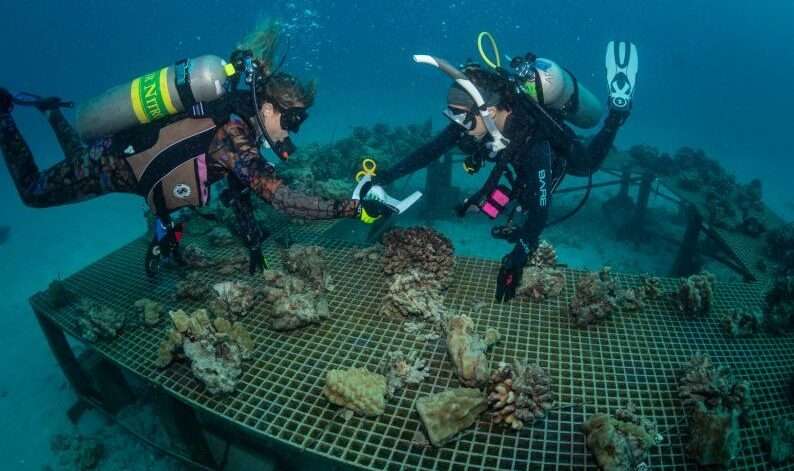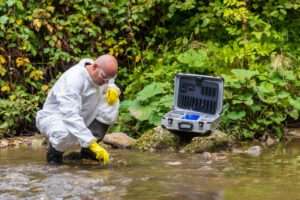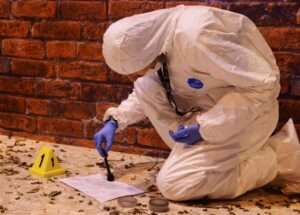Marine Scientist Job Description
Marine scientists are involved in the study of marine life. Their jobs typically require a combination of work in the field and in labs. While they are usually involved in research, development, and monitoring, they can also work in applied research to help industries based on marine life. Some marine scientists even work as consultants to help these industries improve their products or services.
Also Read – Oceanographer Job Description
Research
A marine scientist’s role includes research, study design, and report writing. They are also responsible for advising clients on regulatory requirements, environmental risks, and business opportunities related to marine ecosystems. In addition, they conduct acoustic surveys, contribute to report writing, and work actively on ocean noise.
Marine biologists must be meticulous in their work, have a passion for protecting and preserving the ocean environment, and possess a strong instinct for problem solving. They should also be confident in their ability to carry out practical assignments. These include inventorying marine life exposed to various pollutants and creating new theories based on their research. Their duties also include coring techniques, using geographic information systems, preserving specimens, and tracking the distribution of populations in the ocean.
In addition to collecting specimens from oceans, marine biologists conduct laboratory-based experiments and research projects. These experiments may investigate ocean migration patterns, marine photosynthesis, and the impact of human activity on coral reefs. They also collect and analyze data using instruments such as fishing nets, sonar, and tracking technology. They also plan and execute experiments and interpret results using specialized software.
A marine scientist’s job description should also cover their professional development. These professionals need to know about marine laws and regulations, as well as the health and safety measures needed to protect the environment. They also need to be comfortable using a microscope and electronic equipment. They should also be comfortable working in remote areas, and should be able to handle different types of weather. Finally, they must have excellent interpersonal and teamwork skills. They must also be familiar with boat handling, scuba diving, and first aid.
To attract the best applicants, marine biologists should present themselves in a positive light and inform them about their benefits and working conditions. They must also be legally eligible to work in the country. They should also be experienced with collecting marine samples, handling boats, and researching endangered species. The marine biologist job description should also outline the applicant’s steps and the documents required to apply.
In addition to conducting research, marine scientists are expected to present their findings at conferences, publish their findings in peer-reviewed journals, and apply for grants. Career progression in this field is dependent on dedication, hard work, and networking skills. They should also be flexible with their schedules.
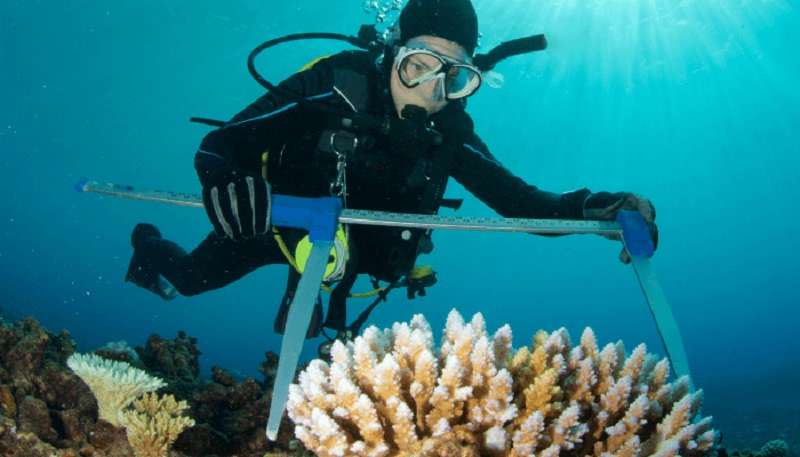
Also Read – Fisheries Enforcement Officer Job Description
Analytical skills
As a marine scientist, you will need to conduct analysis of a wide variety of data sets, ranging from data derived from laboratory-based experiments to fieldwork. For example, you may be studying the migration patterns of marine animals, the effects of human activity on coral reefs, and many other topics. You’ll also need to use equipment such as fishing nets and sonar to collect specimens. Analytical skills will also come in handy when writing research reports and presenting your findings.
While a marine scientist typically works independently, he or she will need to work in a team environment. This means that they must have a good ability to interact with their colleagues, whether they’re scientists or interns. Additionally, they must have an interest in studying marine life and the environment, and enjoy spending long hours observing. In addition to analytical skills, you’ll need to have excellent interpersonal and teamwork skills, and practical experience in scuba diving, boat handling, and first aid.
The role of a marine scientist often requires a strong understanding of marine protected species. They also need to be well-versed in marine spatial planning and surveys, and their work will likely require a high level of motivation. In addition to these technical skills, a marine scientist will also need to have strong communication skills and be proficient in Microsoft Office Suite.
As a marine scientist, you will need to be able to communicate effectively with colleagues and stakeholders. Having an understanding of Indigenous knowledge and experience in marine spatial planning is an added benefit. Additionally, being fluent in English and Spanish will help you build trust with colleagues. In addition, you will need to know how far your colleagues will have to travel and how much time they need to work. You’ll also want to tell potential candidates what benefits they can expect from working with you. This may include tuition credits or commuting benefits.
A marine biologist is an expert on aquatic life and conducts experiments. They may also perform rescues and rehabilitate injured marine animals. They also document the evolution, behavior, and genetics of marine life. Their work may involve both research and teaching, which is why it is necessary to possess excellent analytical skills and excellent interpersonal skills.
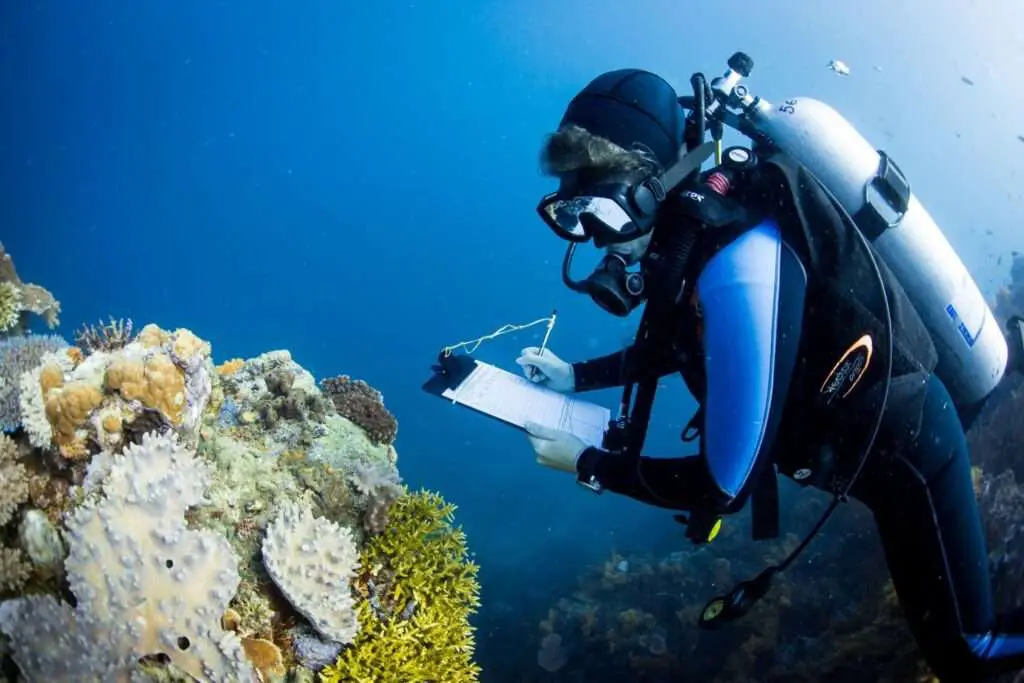
Also Read – Biomedical Scientist Job Description
Teamwork
A marine scientist must be able to work well as part of a team. This includes the ability to communicate problems and new developments in order to achieve their goals. Working as a team is crucial in marine science, as it keeps everyone safe and on task. Whether you work as part of a research team or as part of a boat crew, you will need to be able to work together to complete different tasks and duties.
Marine scientists must have strong analytical skills. Most of their work involves teamwork. In addition, they are required to be able to handle a wide range of marine vessels. Their skills will include working on a ship, working underwater, and first aid. In addition, they must be resilient enough to live in a harsh environment. Although most of their training is theoretical, they must also have practical experience.
Marine biologists work as part of a team and may collaborate with scientists from other departments. For example, they may work on a project with an engineering team to develop an underwater tool. They may also work with a team of biologists to do research. In any case, the team should work well together to produce a result.
The promotion structure of marine biology is not well-defined. As a result, career development depends primarily on commitment and hard work. Oftentimes, lateral moves are necessary to gain experience. A marine scientist’s success in the field depends on the ability to grasp opportunities and seize them. The typical academic career begins with a doctorate and can move into several stages, including research assistant, lecturer, and professor. Eventually, they can even become a dean.
Marine biologists work in teams, so it’s essential to learn how to work effectively with others. Good communication skills are vital because these skills help translate research data from observation to paper. If a marine scientist can express complex ideas in simple terms, they can ensure that their work is widely read.
While the majority of marine biologists work in an office, they also spend time in fieldwork, which may involve diving or working in challenging weather conditions. Despite being a male-dominated field, marine biologists work in a gender-equal manner.
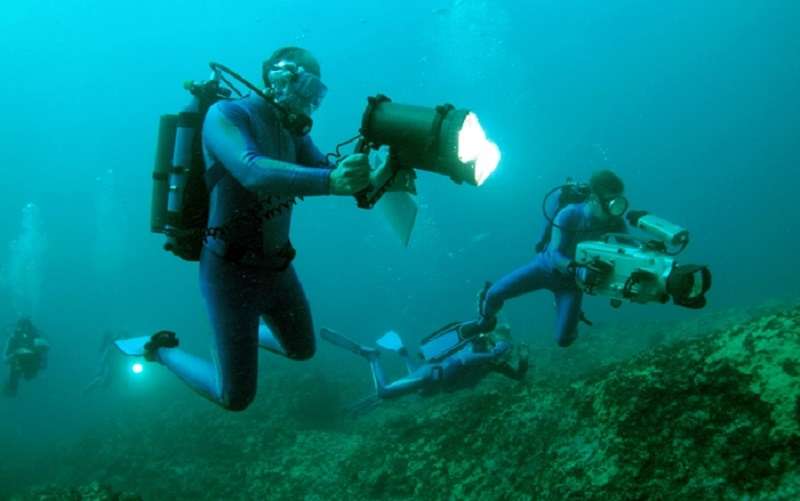
Also Read – Soil Scientist Job Description
Physical demands
A marine scientist’s work involves working in the field, diving, and analyzing data. They also write and present results at conferences. The fieldwork can be challenging, with frequent scuba dives and long hours in the water. This can be a physically demanding career, and the stress level can be high. However, there are many opportunities for career growth in this field.
Marine biologists must possess a strong scientific mind, a thorough attention to detail, a curiosity to learn, and a strong analytical streak. In addition, they must be physically fit. They must be adept at performing specialized tasks, which can include conducting inventories of marine life exposed to pollutants, analyzing and recording data, and developing new theories based on research. This job also requires the use of computers, specialized measuring equipment, and field collecting equipment. They also must be comfortable using research boats and scuba diving equipment.
In addition to scientific research, a marine scientist will advocate for solutions to problems in the sea. Their work involves advocating for solutions to the problem of aquatic habitat destruction. Whether they are conducting experiments in a lab or delivering presentations at a public aquarium, scientists must have excellent communication skills.
Training and continuing education is another prerequisite for becoming a marine scientist. They must acquire a variety of subject and technical knowledge, as well as use microscopes and electronic equipment. Working in the field also requires the use of heavy lifting equipment, such as a-frame and winches. Furthermore, marine scientists must learn to operate hydraulic packs and other equipment.
Depending on their degree, training, and experience, a marine scientist may be involved in private or public research. Almost all marine scientists spend part of their time in the field. This includes working in marshes, wetlands, or the ocean. While they are in the field, they work with various types of marine life, such as sea turtles and dolphins. Oftentimes, they must protect these animals from over-exploitation, and they may also use their expertise to help mitigate the effects of natural disasters.
In addition to excellent communication and problem-solving skills, a marine biologist must be able to work with others and be a good team player. They must also enjoy the study of sea life and spend long periods of time observing it. Moreover, good research requires a strong sense of analysis.
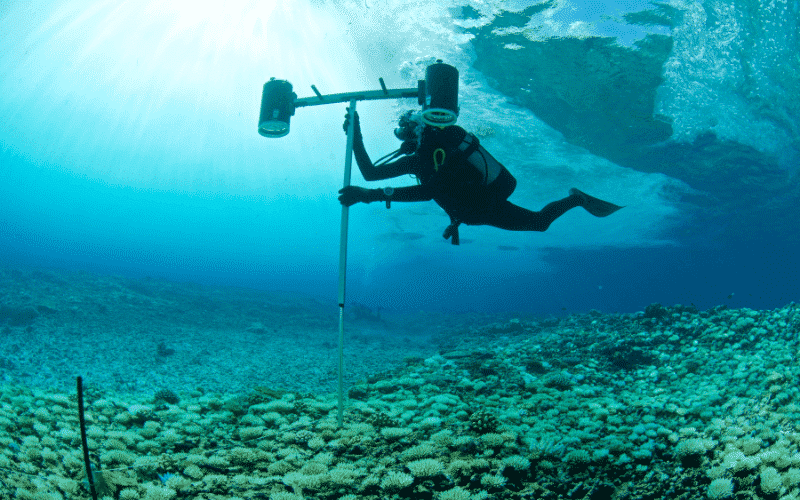
Also Read – Environmental Scientist Job Description
Useful Links:-
Dubai Job Vacancies, Engineering Job Vacancies in Dubai, Top Dubai Jobs, Multiple Dubai Job Vacancies, Dubai Jobs, Jobs in Dubai, Dubai Job vacancies, Dubai Vacancies, Abu Dhabi Job Vacancies, Engineering Job Vacancies in Abu Dhabi, Top Abu Dhabi Jobs, Multiple Abu Dhabi Job Vacancies, Abu Dhabi Jobs, Jobs in Abu Dhabi, Abu Dhabi Job vacancies, UAE Vacancies, UAE Job Vacancies, Engineering Job Vacancies in UAE, Top UAE Jobs, Multiple UAE Job Vacancies, UAE Jobs, Jobs in UAE, UAE Job vacancies, UAE Vacancies
Click Here to find the latest Job Vacancies

